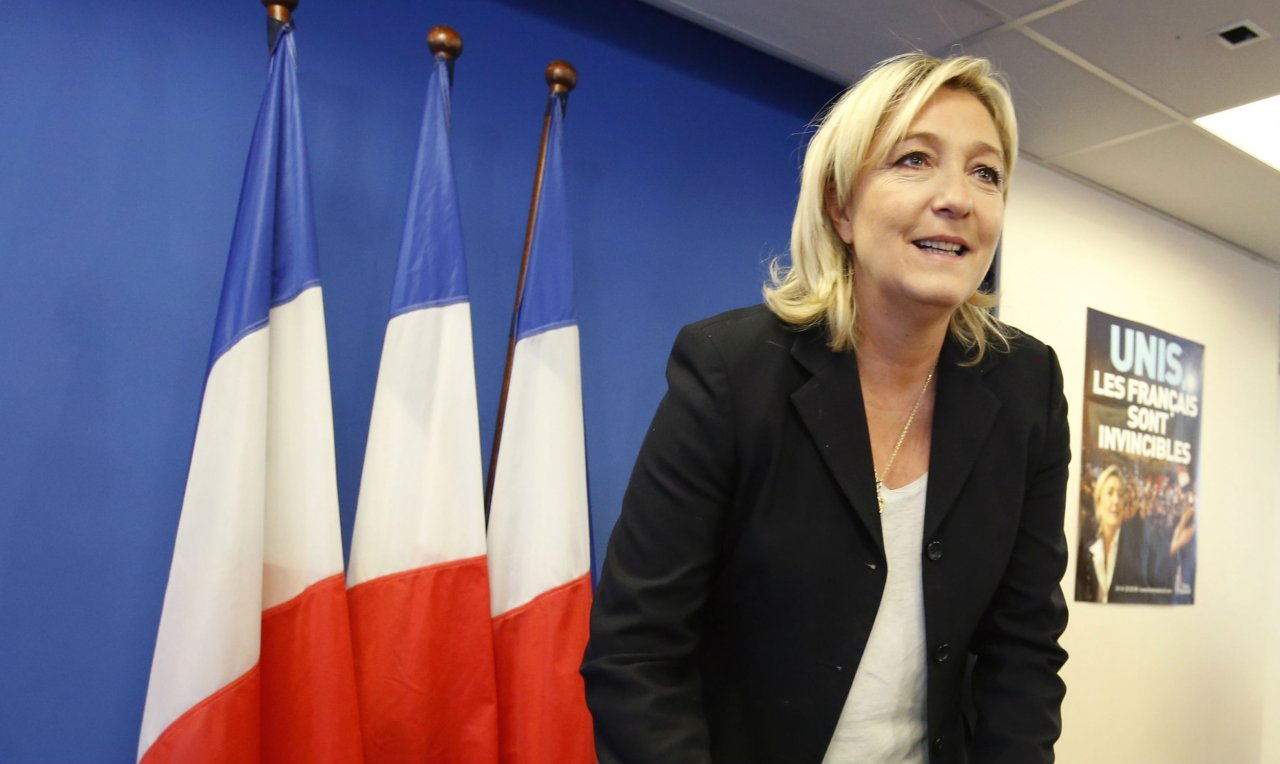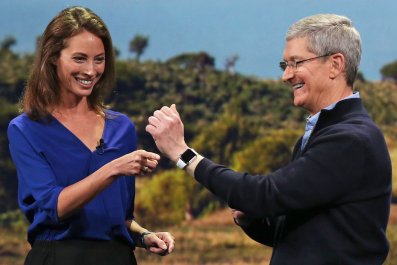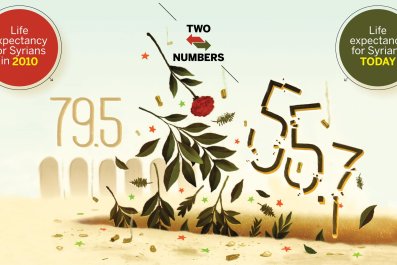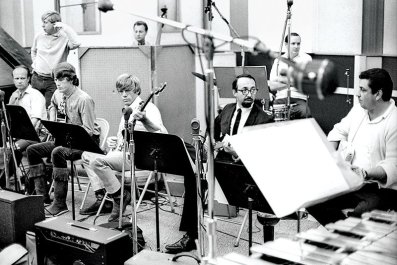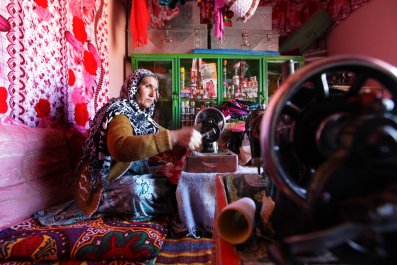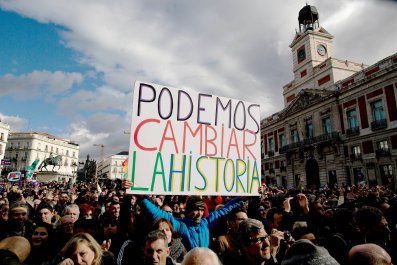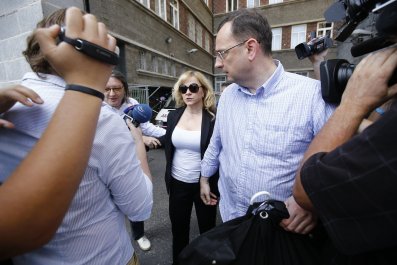Ever since the terrorist attacks on the offices of Charlie Hebdo and the kosher supermarket in Paris early this year, the French political landscape has been dominated by a climate of fear. Not just the fear that naturally manifests in the aftermath of a national trauma, but a kind of mass hysteria, discernible in the language of the nation's mainstream politicians, the main object and beneficiary of which is France's extreme right-wing party, the Front National.
The party may have suffered a setback in the first round of France's departmental elections at the weekend by not coming out on top, but the FN still secured 26% of the national vote, 10% higher than in 2011, and its leader, Marine Le Pen – whose gift for captivating the media is far more subtle and skillful than that of her father Jean-Marie, who founded the party – maintains her ability to dominate political debate in the country. That the party not winning outright is headline news speaks volumes.
As France approached these elections, the main subject for discussion between the ruling Socialist Party (PS), who were beaten into third place with 21% of the vote, and the right wing opposition (UMP), was not France's chronic unemployment, or the rising cost of living, or the rampant national debt, but what to do about Marine Le Pen.
Although many political commentators here have pointed out that fear only nourishes the politics of identity and plays into the hands of extremists, it appears that the temptation to stir up this potent emotion is too good to resist. Having announced in June last year that the Front National was "at the gates of power" France's prime minister, Manuel Valls, recently said in an interview on national radio (Europe 1), that he feared Le Pen's party would "break France apart".
Refusing to answer questions about his government's record or his own Socialist party's current election campaign, Valls returned repeatedly to the "grave dangers" posed to the Republic by the rise of Marine Le Pen. "I'm afraid for my country," he told journalists, adding, "May I share my dread with you? [ . . . ] Don't you think that the Front National, which won 25% of the vote in the European elections, perhaps 30% in the [upcoming] departmental elections, can't come to power? Not in 2022, not in 2029, but in 2017!" Skillfully, Valls drops in the so-called reasons for this alarming possibility: "Because of the divisions in the Left, the fact that a portion of the UMP's electorate . . . is moving to the Front National, don't you think the levies are breaking?"
With this apparently-casual remark, Valls is sending a clear message to the left-wing rebels inside his party who disapprove of what they see as his government's neo-liberal U-turn. If you don't want the FN to win, Valls is telling them, you'd better get behind me. At the same time he's suggesting that the UMP opposition is not a reliably anti-fascist enough and that future of French politics must be a fight to the death between the Front National and the Socialist Party.
Earlier this month, in language no less bellicose, President Hollande urged Socialist candidates in this election to "rip" voters away from the Front National. The result of all this fear-mongering is that the nightmare (or dream, depending on the point of view) of Marine Le Pen becoming the next president has become the national conversation, in the press, social media, and at dinner tables all over France. In last Sunday's interview Valls went even further in his attacks on Marine Le Pen by calling for her "stigmatisation".
It has been observed that victimising Le Pen has only ever fed her personality cult, which is built around the vision of her as an outcast from the French political system. Her father, Jean-Marie, had cleverly commandeered Joan of Arc as one of his party's main emblems, and Marine manages to use the language and iconography of martyrdom to even greater effect than he did. Although she is part of an affluent, middle class political dynasty, she is always careful to convey the romantic idea that she has spent all her life struggling for the good of France – against political elitism and the morally corrupt "system" that seeks to muzzle her and suppress her views.
More significantly, she has managed to co-opt the language of revolution, which, in a rebellious nation like France, whose national mythology is built around the cult of popular dissent, is quite a weapon. In a recent interview with BFM TV, Le Pen deflected reports of the dizzyingly racist, homophobic, anti-Semitic and Islamophobic tweets, that have been coming from the rank and file of her party, by suggesting that the FN was "victim of a campaign built upon class hatred, the hatred of the people . . . It's true," she went on, "the socialist cast, the political aristocracy, does not like the idea that butchers, mothers, students might take their place [and sit on the councils of France's 100 départements]. It bothers them. They consider that politics should be reserved for the aristocracy. Well it isn't. The people are back."
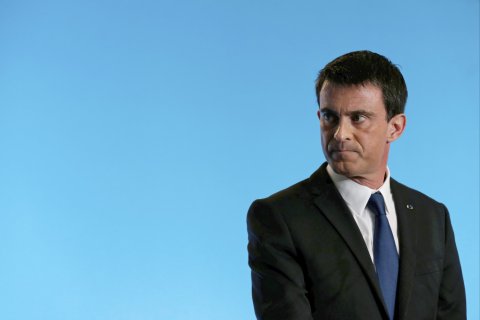
To an anglophone audience, all this posturing and grandiloquence, particularly in a local election, may seem a little absurd. Surely the point is to address local concerns like why isn't the school bus coming to our village any more? The problem is that politics in France tends to be a battle for the moral high ground – a matter not of which party has the most effective solutions, but of which party is in the right. From the Enlightenment, to the Revolution, to May 1968, all of France's political battles have been fought not in the name of policy, but in the name of ideas.
If Valls can establish Marine Le Pen as the monster threatening to destroy republican values and himself as the only viable leader in the crusade against her, he will immediately become presidential material. Indeed, if he continues to build up her political profile (as he is doing by endlessly referring to her) he could well find himself facing her in the second round of the next presidential elections. If he does, and if he can then manage to make the French believe that Marine Le Pen is indeed a neo-fascist and therefore on the wrong side of history, Manuel Valls would, as he well knows, be very likely to win the election, just as Jacques Chirac, of whom the French were utterly sick, managed to win a second term against her father, Jean-Marie in the elections of 2002.
The trouble is that Marine Le Pen not only vigorously denies being a fascist, she claims to be the true heir of French republicanism. Her campaign for these elections has been characterised by a conspicuous lack of reading matter: few tracts or articles in the local press but posters everywhere, of Marine looking serene and the caption "In the face of the betrayals of the UMPs there's hope in 'Blue Marine' [the name for the Front National's extreme right coalition]."
Marine Le Pen knows that, in the battle for the moral high ground, the less she refers to specific policy, the better off she'll be. It's enough simply to use the appropriate imagery and appeal directly to French emotion. To this end, she feeds on the widespread fear in this country of the modern world and its nostalgia for the way things were: "The post office will return to the village . . . " She promises in a promotional video. "I shall protect France's treasure of green and her treasure of blue, her farming and her fishing communities. I shall protect hunting and rural traditions from the diktats of Brussels and the big cities . . . " A vision, then, of an eternal France saved from the rising tide of globalisation and capitalist hegemony.
For what does her surprisingly diverse electorate have in common? Not the party's racist heritage, that she hides so well, but its fear of modernity. What can someone like Valls offer in response to this idyllic vision, but something even more glorious: a chance to be a member of a new Resistance movement? By whipping up the fear of the fascist jackboot, is Valls not offering the nation's collective unconscious an opportunity to emulate the heroes of the French Resistance? The trouble is that Marine Le Pen is very careful not to give the slightest hint that she is a neo-fascist, much like her father.
She's so skillful in avoiding any remarks that might be construed as such, that even Roger Cukierman, president of the Crif, the French affiliate of the World Jewish Congress, in an interview last week, referred to her as irreproachable: "In the Jewish world, we are, I think, all aware that behind Marine Le Pen, who is personally irreproachable, there are all the Holocaust deniers, all the Vichyists and all the Petainists . . ."
When Manuel Valls broadcast his "dread" of Marine Le Pen on French radio recently, Sébastien Huyghe, spokesperson for the UMP, called him "a pyromaniac fireman". Valls's tactic of lighting fires in order to play the hero, and put them out, is certainly dangerous in a culture that has long been fuelled by the grand idea.
Increasingly, though, it appears that many French people – particularly the younger generation, which isn't particularly afraid of globalisation – are becoming wearied by ideology and are thirsty for pragmatic solutions to their problems.
Surely, whichever politician is brave enough to put a stop to this habit of trawling French history in search of moral legitimacy and start talking about how to start and sustain a business or how to pay the bills at the end of each month, will be welcomed with open arms?



